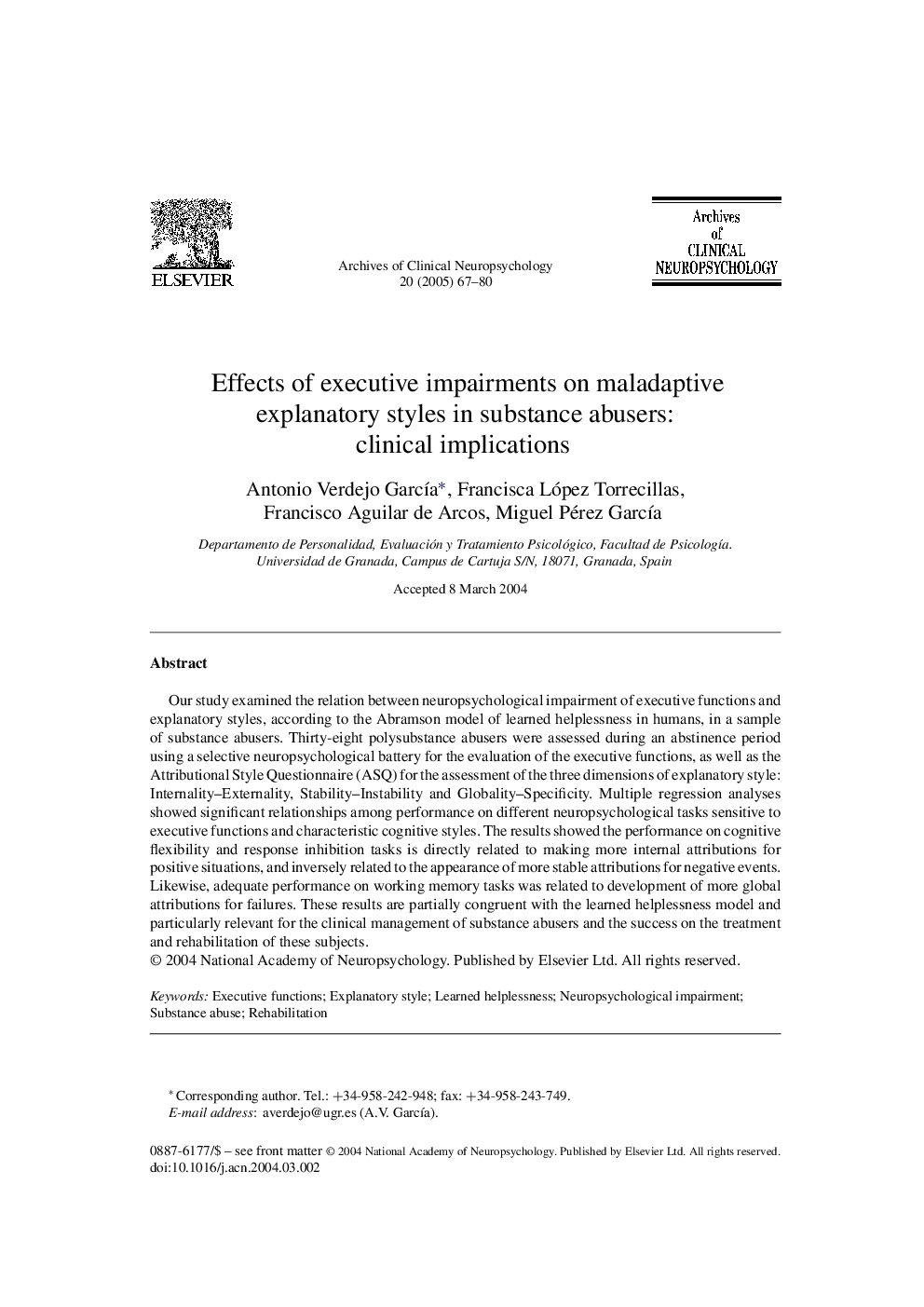| Article ID | Journal | Published Year | Pages | File Type |
|---|---|---|---|---|
| 9720008 | Archives of Clinical Neuropsychology | 2005 | 14 Pages |
Abstract
Our study examined the relation between neuropsychological impairment of executive functions and explanatory styles, according to the Abramson model of learned helplessness in humans, in a sample of substance abusers. Thirty-eight polysubstance abusers were assessed during an abstinence period using a selective neuropsychological battery for the evaluation of the executive functions, as well as the Attributional Style Questionnaire (ASQ) for the assessment of the three dimensions of explanatory style: Internality-Externality, Stability-Instability and Globality-Specificity. Multiple regression analyses showed significant relationships among performance on different neuropsychological tasks sensitive to executive functions and characteristic cognitive styles. The results showed the performance on cognitive flexibility and response inhibition tasks is directly related to making more internal attributions for positive situations, and inversely related to the appearance of more stable attributions for negative events. Likewise, adequate performance on working memory tasks was related to development of more global attributions for failures. These results are partially congruent with the learned helplessness model and particularly relevant for the clinical management of substance abusers and the success on the treatment and rehabilitation of these subjects.
Keywords
Related Topics
Health Sciences
Medicine and Dentistry
Psychiatry and Mental Health
Authors
Antonio Verdejo GarcıÌa, Francisca López Torrecillas, Francisco Aguilar de Arcos, Miguel Pérez GarcıÌa,
